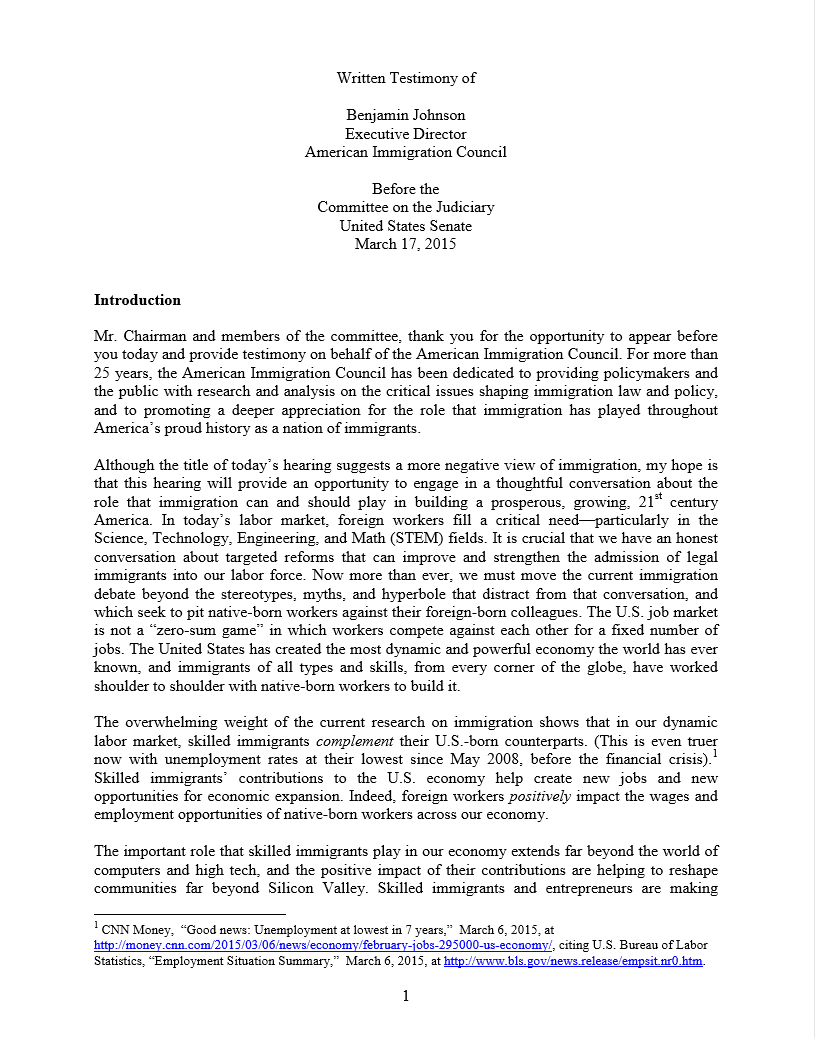The enforcement of immigration laws is a complex and hotly-debated topic. Learn more about the costs of immigration enforcement and the ways in which the U.S. can enforce our immigration laws humanely and in a manner that ensures due process.
Recent Features

Guides & FAQs
Learn how institutions, employers, or talented researchers and other highly skilled individuals in the STEM fields can take advantage of the Early Career STEM Research Initiative.





